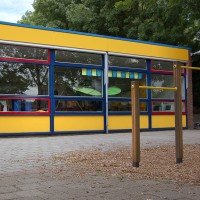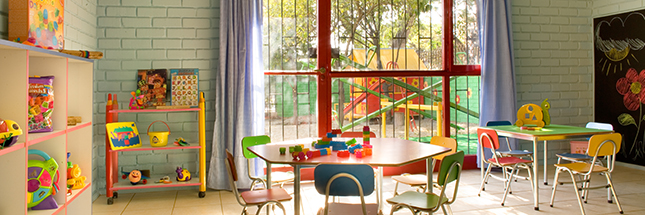Types of Pre-schools

When choosing which preschool to send their child to, most parents make a decision between different types of schools. The choices may be overwhelming, but it’s important to keep in mind that the type of program you choose will affect how much or how little your child learns in preschool. Choosing the program that is the best possible fit with your child will ensure that he or she gets off to a good start. The following are some of the most common types of preschools in the United States.
Montessori
Montessori is one of the most well-established names in early childhood education. Montessori schools have been in operation around the world for over one hundred years, since the first school founded by Dr. Maria Montessori in 1907. The approach focuses on enabling children to learn both at their own pace and in their own way. Children are treated with respect and given choices to foster independence, self-esteem, and self-reliance. Classes are usually mixed-age, which allows students to share their learning. Montessori-certified teachers must undergo training.
Waldorf
The Waldorf method is based on the theories of Rudolf Steiner, an Austrian writer. The Waldorf approach is a humanistic approach that focuses on fostering development of the child’s spirit, soul, and body. The child’s interests are also nurtured in the Waldorf classroom through creative play in a home-like, supportive environment. The approach features a variety of daily hands-on activities, from singing to dressing up. Instruction is directed by teachers trained specifically in the Waldorf method.

Bank Street
The Bank Street method is centered on the child’s needs and individual development in cognitive, social, physical and emotional domains. The central belief behind Bank Street philosophy is that children learn by doing – by exploring, experimenting, and creating. Activities including playing with toys and materials to stimulate the imagination – water, art supplies, clay, blocks, etc. Students are allowed to choose who and what to play with. They may work on their own or in groups.
Parent Co-ops
If you are looking to play a larger role in your child’s preschool experience, a parent cooperative preschool could be the right thing. Parent co-ops allow parents to work directly with classroom teachers to foster their child’s development on a day-to-day basis. The goal is to help children learn how to interact with other children in a constructive and positive way. Conflicts between students are resolved in a mutually-affirming way. Parents have the additional role of serving on the school’s board of directors.
Play-Based
Play-based preschools are highly popular and are based on the idea that children learn best through their play. Play-based programs offer both structured and non-structured opportunities for children to learn. Interaction with other children is also encouraged and guided by teachers. The development of social skills alongside learning is another goal of play-based programs.
Reggio Emilia
This approach originated in the 1940s in Italy. The philosophy encourages child exploration and promotes self-expression and community engagement. The daily activities are non-structured and led by young learners through choices that reflect their personal interests. Reggio Emilia schools do not have a formal curriculum or teacher training. It is not a set method, but a theory and practice for the classroom.
